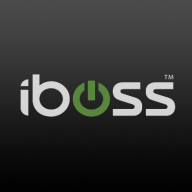


Cisco Umbrella and Cloudflare One compete in the network security market. Cisco Umbrella seems to have the upper hand due to its robust features and proactive customer service, despite Cloudflare One's seamless integration capabilities and affordable pricing for smaller businesses.
Features: Cisco Umbrella provides DNS-based security, web content filtering, and protection against ransomware and phishing. It offers detailed traffic monitoring and automated adjustments with OpenDNS integration. Cloudflare One integrates DDoS protection, CDN, and Zero Trust security, offering rate limiting and custom rule sets for efficient traffic management. Cloudflare Access enables secure, application-based access.
Room for Improvement: Cisco Umbrella could enhance integration with on-premises solutions and improve malware protection. Users struggle with setup and granular access control. Cloudflare One requires improvements in onboarding, pricing transparency, and support for complex enterprises, especially VPN integration and troubleshooting feedback.
Ease of Deployment and Customer Service: Cisco Umbrella offers straightforward deployment across multiple environments, with highly rated customer service and extensive documentation. Cloudflare One is easy to deploy in public clouds but needs more problem-solving resources. Cisco's proactive assistance gives it a slight edge.
Pricing and ROI: Cisco Umbrella, seen as a premium product, justifies its cost with strong security features and reduced hardware expenses, leading to a solid ROI. Cloudflare One's pricing is affordable, especially for small businesses, easing security and traffic management costs. However, some users find Cloudflare's pricing challenging to predict.
| Product | Market Share (%) |
|---|---|
| Cisco Umbrella | 15.1% |
| iboss | 2.4% |
| Cloudflare One | 3.7% |
| Other | 78.8% |

| Company Size | Count |
|---|---|
| Small Business | 6 |
| Midsize Enterprise | 6 |
| Large Enterprise | 5 |
| Company Size | Count |
|---|---|
| Small Business | 49 |
| Midsize Enterprise | 30 |
| Large Enterprise | 51 |
| Company Size | Count |
|---|---|
| Small Business | 10 |
| Midsize Enterprise | 2 |
| Large Enterprise | 10 |
Iboss offers a comprehensive cloud-based security platform valued for its scalability and autonomous features, ensuring robust security with easy deployment and management capabilities.
Renowned for its robust security architecture, Iboss integrates seamlessly within diverse networks, delivering efficient granular filtering and advanced content categorization. Its single pane of glass console provides ease of management, allowing rapid scalability suitable for rapidly deploying environments. Operates in BYOD setups due to inline filtering without device installation. Integration with cloud-based applications enhances user control, and features like SASE, SSL inspection, and ChatGPT risk protection stand as highlights. Despite its strengths, users have pointed out areas for enhancement like direct navigation in reports, SSL decryption, and better cloud integration while having room to improve data loss prevention.
What are the most important features of Iboss?The usage of Iboss spans educational institutions, specifically K-12, to enforce internet policies, protect data, and support remote work environments. It provides web filtering and security frameworks to ensure safe browsing. Its platform-as-a-service model offers flexibility for both cloud-based and on-premises requirements, integrating seamlessly to deliver enhanced security features suitable for various deployment needs including zero trust, CASB, and network security for work-from-home setups.
Cisco Umbrella provides fast-deploying DNS-layer security with powerful threat protection capabilities. Trusted by over 30,000 entities, it ranks highly in DNS security and effectively supports secure remote work environments.
Cisco Umbrella offers comprehensive DNS security, web filtering, and ease of use, enhancing network security through robust threat protection and malware prevention. It processes over 600 billion requests daily, making it a leader in its field. The seamless integration with existing infrastructures and cloud-based nature makes it suitable for remote and distributed work environments, ensuring consistent security throughout. Management is streamlined with a single-pane interface that simplifies administration, while in-depth reporting capabilities provide valuable insights for continuous monitoring.
What are the key features of Cisco Umbrella?Cisco Umbrella is widely adopted in industries requiring advanced DNS-level security to counteract malware, phishing, and cyber threats. Its ability to monitor and protect remote and roaming employees makes it an attractive option for sectors highly dependent on cloud services. By managing DNS queries and blocking harmful sites, Cisco Umbrella enhances cybersecurity across networks, providing an added layer of protection for businesses worldwide.
Cloudflare One is a comprehensive platform for security, performance, and connectivity. It provides features like rate limiting, DDoS protection, and application access, tailored to enhance user experience while securing internet access and accelerating communications.
Designed to integrate security measures with ease of use and scalability, Cloudflare One offers a secure web gateway and zero trust network access. These features ensure seamless setup and operation, making connectivity reliable and protected. Users appreciate its integrated console, intuitive interface, and the ability to manage risk effectively. It offers straightforward deployment, improves latency, and boasts cost-effectiveness. While its onboarding process and documentation need enhancement, its value in content delivery and application shielding is notable. Despite challenges in integrating Cloudflare Access with existing VPNs and the need for better automation and support, it remains vital for DNS and infrastructure protection.
What features make Cloudflare One stand out?In industries like finance, retail, and technology, Cloudflare One is crucial for enabling secure remote access and protecting web applications against dynamic threats. It supports compliance access policies and enhances content delivery, playing a key role in safeguarding digital infrastructure.
We monitor all Secure Web Gateways (SWG) reviews to prevent fraudulent reviews and keep review quality high. We do not post reviews by company employees or direct competitors. We validate each review for authenticity via cross-reference with LinkedIn, and personal follow-up with the reviewer when necessary.